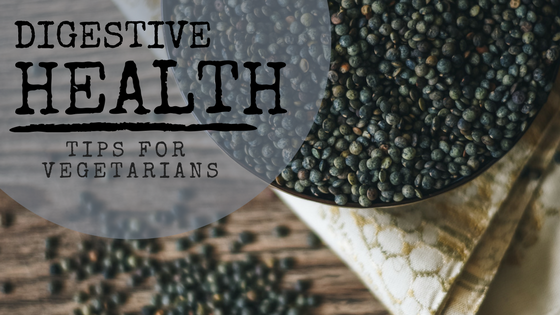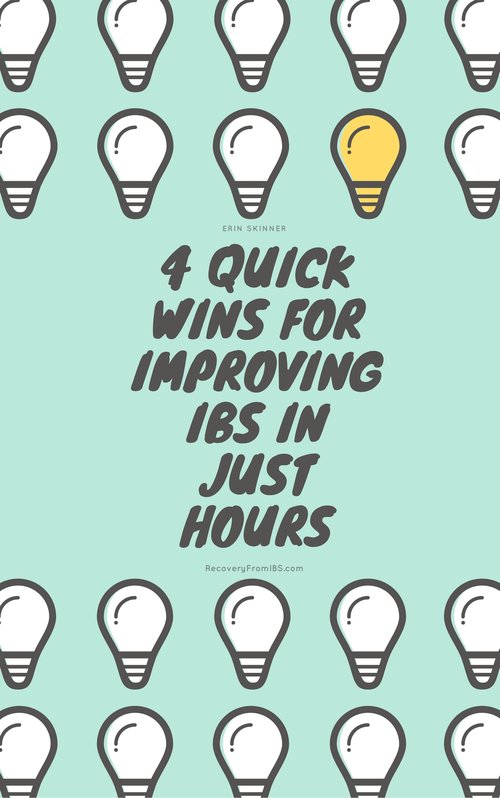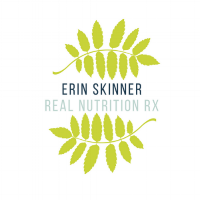Tips For How to Improve IBS for Vegetarians

Probably one of the most common questions that I get goes something like this “How can I improve my IBS on a vegetarian or vegan diet”?
In other words, people on vegetarian diets often struggle with gas, bloating, diarrhea, constipation, reflux, cramping, and abdominal pain. Fortunately, I’ve figured out exactly how to improve IBS for vegetarians and I’m happy to share it with you.
I’ll start out with this disclaimer: I respect everyone’s decision to pick whichever diet that they feel is consistent with their needs and beliefs.
However, I also don’t believe that vegetarian or vegan diets are ideal for human health. In fact, it’s impossible to meet your needs without supplementation. I’ve seen a lot of ‘recovered’ vegans in my practice, so I have personally witnessed the adverse effects of long-term nutrient depletion. Please don’t take offense – it’s my take on the scientific evidence, but I respect your take as well!
OK. deep breath. If you’re still here – great – you can still get some improvement of your IBS symptoms like bloating, diarrhea, gas, constipation, reflux, cramping, and abdominal pain if you are vegetarian or vegan.
Here are the best places to start to improve IBS for vegetarians:
1. Consume Low-FODMAP protein foods
These include:
- Tofu (not silken)
- Tempeh
- Small lentils, up to ½ cup cooked
- Drained, rinsed, canned chickpeas (up to ½ cup)
- Edamame (1/2 cups shelled)
- Rice protein powder (check for extra problematic ingredients like gums, emulsifiers, and sugar alcohols)
- Up to 2 Tbsp peanut or nut butter
2. Avoid High-FODMAP protein sources such as large beans:
- Kidney beans
- Baked beans
- Black beans
- Butter beans
- Cannellini beans
- Lima beans
- Navy beans
- Pinto beans
- Soy milk made with whole soybeans (made with soy protein is OK)
- Commercial hummus
3. Focus on Low-FODMAP fruits and vegetables
- Avoid garlic and onion, unless it’s infused oil
- Limit serving size of avocado to 1/8 per meal
- Limit fruit to ½ piece per serving
- Some common high-FODMAP vegetables include cabbage, Brussels sprouts, green beans, sweet potato, and zucchini/courgette
- Limit nuts and seeds to just 2 Tbsp (30ml) per meal
- Avoid lactose such as in milk, cream, yogurt, and soft cheese. Hard cheese and lactose-free dairy products are fine. You may also do OK with goat or sheep’s milk and cheese/yogurt.
- Avoid sugar alcohols such as in bars and protein powders. Also check gum and other beverages (‘sugar-free’ is a red flag)
- Avoid fructose such as in soda and other sweetened foods and beverages. This includes high-fructose corn syrup.
4. Remember Non-Diet Tricks
There are a variety of other techniques that can improve IBS symptoms! These include:
- Space meals and snacks at least 3 hours apart
- Don’t eat within 2 hours of going to sleep
- Meditate daily for at least 10 minutes
- Improve on your sleep quality, duration, and timing
- Exercise most days, but not right before bed
5. Consider Nutrient Status
Also, remember that nutrient status is important for healthy digestion. If you follow a vegetarian or vegan diet, I strongly recommend working with a nutrition professional. You can get help with repleting often lacking nutrients such as omega-3 fats, vitamin B-12, zinc, choline, and iron.
In fact, some of the nutrients that are often lacking in meat-free diets are the very nutrients most needed to heal/repair the gut and to produce stomach acid. These include glycine, zinc, iron, and essential fatty acids. So, again, consider smart, quality supplementation as an important step in your recovery.
A few supplements that may help to improve IBS for vegetarians include:
- A high-quality vitamin and mineral (i.e. methylated B’s, chelated minerals, and ‘less common’ nutrients such as choline and K2)
- A quality probiotic. Start with a lacto/bifido combo with 10+ strains at 25-50 billion CFU/day
- Fermented cod liver oil or, at a minimum, high quality fish oil at 1-3 grams/day. Vegan omega-3 products are also available (from algae)
- Soothing and repairing supplements such as marshmallow root, peppermint oil, L-glutamine, aloe, and slippery elm
- Digestive enzymes (there are plant-based only compounds available)
That’s a lot for now! This isn’t the full low-FODMAP protocol, but sometimes it’s just some simple swaps that make all of the difference. I recently had a vegetarian client just take out garlic and onion from her diet – IBS gone.
I’d love to hear our comments by reply to this post, or feel free to contact me directly.
Bonus!
If you have IBS or digestive woes, don’t miss my FREE list of quick wins.
It’s your ticket to make some simple swaps that get you quick improvement.

Wishing you all the best,

Erin, Integrative and Functional Registered Dietitian Nutritionist
P.S. curious if we’d be a good fit to work together? Contact me to set up a free chemistry call!
